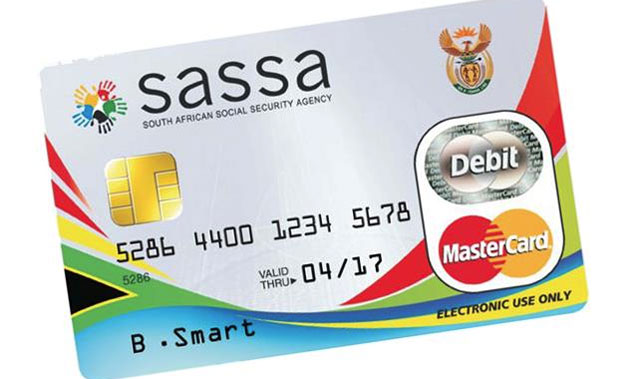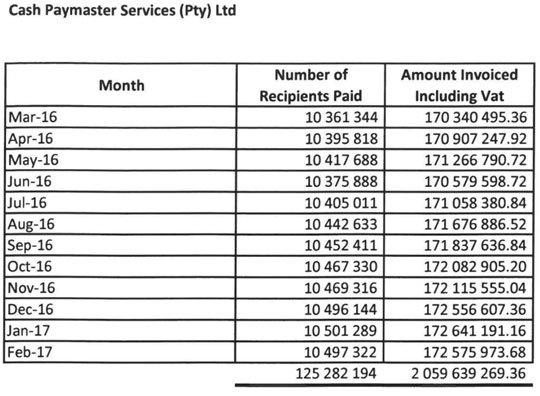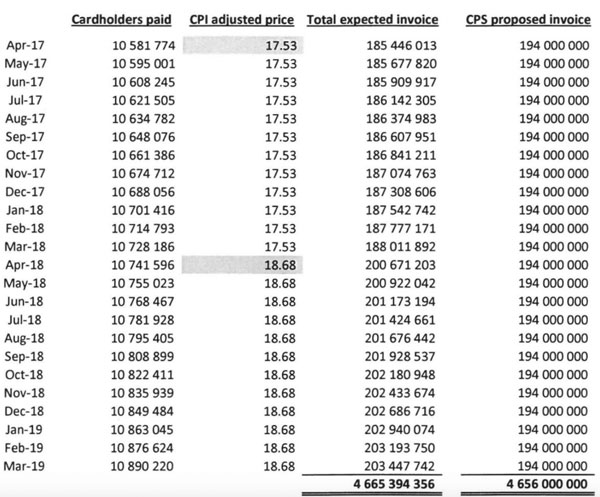
Net1’s social grant distribution subsidiary Cash Paymaster Services (CPS) has unveiled the fee it proposes to receive under an extended contract to distribute social grants. This comes after it was instructed by the constitutional court on Wednesday to reveal this information.
In its affidavit submitted on Thursday, CPS proposed a fixed fee of R194/month (VAT inclusive) for a period of two years, equating to R4,6bn in total (starting 1 April and going through to 31 March 2019).
This is based on an inflationary increase of 6,6%/year, per cardholder paid. But it also takes into account the 3% growth in grant beneficiaries between financial years 2017 to 2019 as indicated by the government in its 2016 medium-term expenditure framework.
The fixed fee is therefore based on what the total number of grant beneficiaries would be in the second year of the contract.
CPS is not remunerated on the number of grant beneficiaries, but on the number of recipients paid (see table below).
This means that if a mother receives three child support grants, she is paid once into her Sassa account for all three grants. CPS is currently paid R16,44 per cardholder, per month.
For February 2017, CPS made 10,5m payments (see second column below) at R16,44 per payment for 17,5m grant recipients. This amounted to total remuneration of R172,5m.

A key takeaway is that CPS assumes the number of cardholders paid (column 2 in the table below) grows in line with the number of beneficiaries (ie. 3% over the term of the contract).
This proposal is a material deviation from the current contract, which remunerates CPS on the actual amount of cardholders paid per month.
This new proposal uses projections and assumptions to derive a fixed monthly fee that it would receive from the first month if the terms are accepted.

Its latest submission is contrary to reports that its fee would be inflated to R25 per cardholder under an extended contract.
CPS has come under fire recently, with critics accusing it of profiting from the state given its proposed increased fee and assertion that it’s the only company that has the technological capacity to distribute social grants.
In justifying its new rate, Nunthakumarin Pillay, the director of CPS, says it would be required to maintain its infrastructure, regardless of the number of Sassa beneficiaries in the system over the course of the contract.
“Because of the fact that recipients are able to collect their grants anywhere in the country, at any pay point, CPS would be required to maintain most of its infrastructure for the duration of the contract, regardless of the number of beneficiaries paid,” Pillay says in court papers.
- This article was originally published on Moneyweb and is used here with permission




